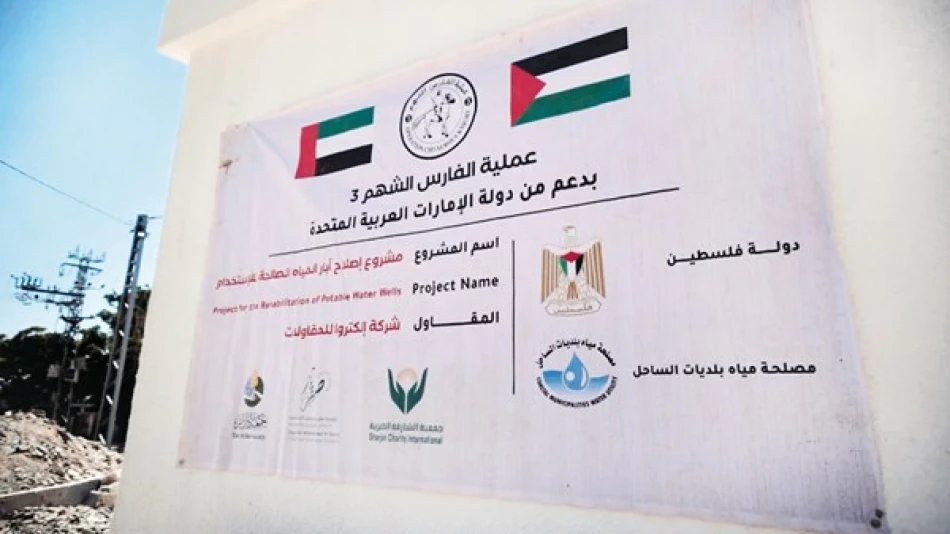
UAE Restores Gaza's Water Infrastructure, Ensuring Reliable Access for Residents
UAE's Operation "Gallant Knight 3" Restores Water Access for 700,000 Gaza Residents
The United Arab Emirates is making significant strides in addressing Gaza's humanitarian crisis through its ambitious water infrastructure project, repairing 28 critical water wells across the territory. This initiative, part of the larger "Gallant Knight 3" operation, represents one of the most comprehensive humanitarian responses to Gaza's acute water shortage, directly impacting the daily lives of nearly 700,000 residents who have faced severe water scarcity amid ongoing regional tensions.
Infrastructure Revival Amid Crisis
The water restoration project focuses on rehabilitating damaged central wells throughout Gaza's various governorates, executed in partnership with the Coastal Municipalities Water Utility. This technical collaboration demonstrates the UAE's strategic approach to humanitarian aid—working directly with local authorities to ensure sustainable water delivery systems rather than temporary relief measures.
The timing of this intervention is particularly crucial. Gaza's water infrastructure has deteriorated significantly, with many residents previously relying on contaminated sources or expensive private water deliveries. By restoring these central wells, the UAE is effectively rebuilding the backbone of Gaza's municipal water system.
Strategic Humanitarian Diplomacy
Operation "Gallant Knight 3" extends far beyond water projects, encompassing healthcare, food security, and emergency relief through multiple delivery mechanisms. The operation's 65th airdrop, branded as "Birds of Goodness," alongside convoy deliveries through border crossings, showcases the UAE's multi-pronged approach to humanitarian logistics.
This comprehensive strategy mirrors successful humanitarian interventions the UAE has conducted in Yemen, Syria, and Lebanon, establishing the Emirates as a regional leader in crisis response. The involvement of Dubai Charity Association and other Emirati institutions reflects the country's model of combining government resources with civil society engagement.
Regional Context and Implications
The UAE's Gaza initiative occurs against a backdrop of shifting Middle Eastern diplomatic dynamics. While maintaining its Abraham Accords commitments with Israel, the Emirates is simultaneously demonstrating its commitment to Palestinian humanitarian needs—a delicate balance that reflects broader Gulf state approaches to regional stability.
This dual approach contrasts with more polarized positions taken by other regional powers, positioning the UAE as a pragmatic actor capable of maintaining diplomatic relationships while addressing humanitarian crises. Such positioning could prove valuable for future mediation efforts and post-conflict reconstruction planning.
Long-term Impact on Regional Stability
The water infrastructure project's significance extends beyond immediate humanitarian relief. Access to clean water is fundamentally linked to public health, economic stability, and social cohesion. By addressing this basic need, the UAE is contributing to conditions that could support longer-term stability in Gaza.
The project's focus on repairing existing infrastructure rather than creating parallel systems suggests a strategic understanding of sustainable development principles. This approach ensures that improvements will remain functional and maintainable by local authorities long after the immediate crisis subsides.
For international observers, Operation "Gallant Knight 3" demonstrates how middle powers can effectively contribute to crisis resolution through targeted, practical interventions that complement broader diplomatic efforts while building goodwill across multiple stakeholders in complex regional conflicts.
Most Viewed News

 Layla Al Mansoori
Layla Al Mansoori






